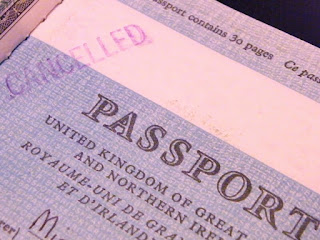On Tuesday 30th November, Dr Włodzimierz Meir Jędrzejowicz, President of the London-based Federation of Poles in Great Britain, has written to Mr Sajid Javid, Secretary of State for Health and Social Care, expressing his concern at statistical and anecdotal evidence of covid vaccination hesitancy in the Polish community, especially amongst the younger generation. A survey indicated, for instance, that 18% of UK Poles would refuse to be vaccinated and a further 17% did not know if they would. These figures are much higher than for the average population in the United Kingdom. Renewed concerns over the new Omicron variant in the UK could only increase anxiety over this matter.
The Polish ethnic minority in the UK forms more than 1.5% of the UK population and should therefore be considered statistically significant in itself. However, Dr Meir Jędrzejowicz remains concerned that this evidence of hesitancy in the Polish community may remain undetected because its presence is hidden in a much larger statistical group described as “white other”, where the overall level of uptake is reasonably high. He asks Mr Javid whether his Department could take special measures to record the vaccine uptake specifically in the Polish community in the United Kingdom, so that resources can be found to conduct a dedicated information campaign, in the Polish language, aimed at encouraging the Polish ethnic minority in the UK to be vaccinated.
The Federation of Poles in Great Britain CIO is an umbrella organization for Polish organizations in Great Britain and has served as the voice of the Polish community in this country since 1946.
For any further information please contact Wiktor Moszczynski, Federation spokesman – tel 07786471833 or email wikmos@gmail.com
Rt Hon Sajid Javid MP 30 November 2021
Secretary of State for Health and Social Care
39 Victoria Street
London SW1H 0EU
Dear Secretary of State,
The Federation of Poles in Great Britain, which has been the umbrella organizations for
Polish organizations in the UK since 1946, is particularly concerned at the considerable
anecdotal evidence to the effect that many younger members of the large-scale Polish
community in the UK are resisting invitations to take up anti-Covid vaccinations, and also at
the lack of accessible firm ONS and PHE statistics on the Polish minority in this country. We
are writing to you as concern is growing about the new “omicron” mutation.
We are aware of vocal resistance to vaccinations displayed at Polish social events and even
among NHS staff of Polish origin. This has occurred despite efforts by many Polish
organizations such as the Polish Social and Cultural Association, Merseyside Polonia, the
Polish Weekly and ourselves, to hold online forums and make proper medical advice
available on the dangers of Covid-19 using advertised podcasts and social and community
media. Unfortunately, many Polish citizens and Britons with a Polish family background base
their information on health issues on sources in Poland where, despite a vigorous vaccination
campaign, there is considerable hostility in social media to warnings of the dangers of the
Covid pandemic and the need to vaccinate. We are aware furthermore that many Polish
citizens in Britain have not even registered with their local GP, partly because of language
problems, and partly because some still do not understand the system in this country.
Statistical evidence is currently sparse but the Migrant Essential Workers Project initiated by
the Universities of Glasgow and Sheffield had conducted a survey of 1100 members of the
Polish community between February and April 2021which revealed that 18% would not get
vaccinated, 17% did not know, while 2.5% “preferred not to say”. As you are aware, the
hesitancy figures across all communities in the UK is only 4%. This also correlates with the
alarming survey conducted in 2018 by Klaudia Bielecki, Senior Project Manager at NHS
Lothian Digital, which showed that uptake of flu vaccinations among Polish children was
only 25%.
Unfortunately, because citizens of Polish ethnicity are included within the general description
of “White Other” in most social surveys conducted by the NHS and other related institutions
dealing with health, social services, or education, it is difficult for your Department to focus
on the Polish community specifically. However, we are a statistically significant minority,
comprising up to 1.5% of the UK population. The ONS currently claims that there are
738,000 citizens of Polish nationality in this country, but it does not include those born in
Poland and possessing UK passports and nor does that take into account that as many as 1.1
million Polish citizens are recorded as applying successfully for settled status. Consequently,
any significant vaccine hesitancy within the Polish community suggests a considerable
setback for the Covid vaccination programme at large.
We urge therefore that your Department should upgrade its statistics on “White Other” to
identify the Polish minority as statistically significant on health issues, and also mount a
large-scale government publicity in the Polish language to encourage Covid vaccinations,
similar to the ones conducted for South Asian and black minorities, and in which local
authorities and Polish social organizations can participate.
Yours sincerely
Włodzimierz Mier Jedrzejowicz
President, The Federation of Poles in Great Britain, CIO















